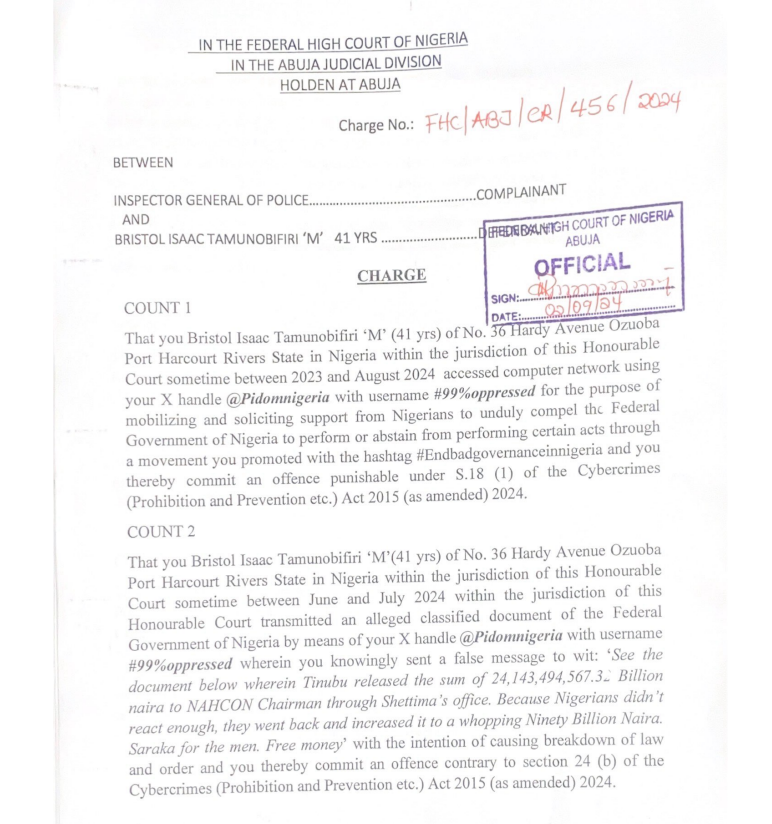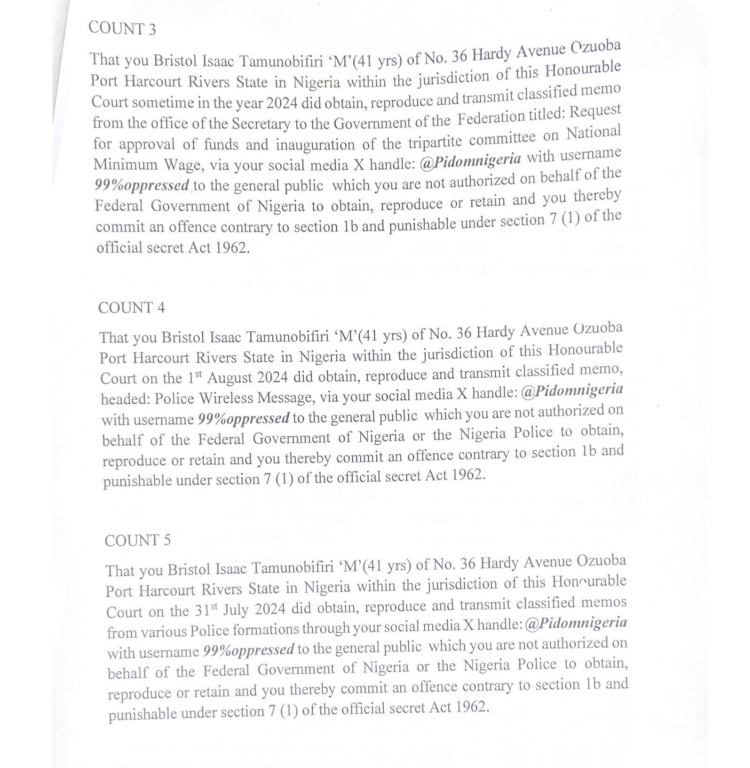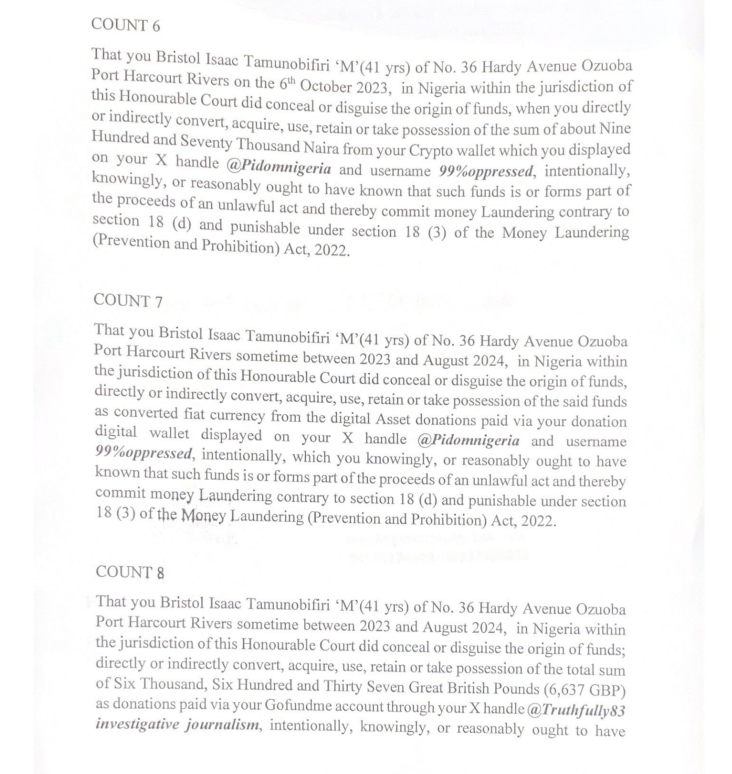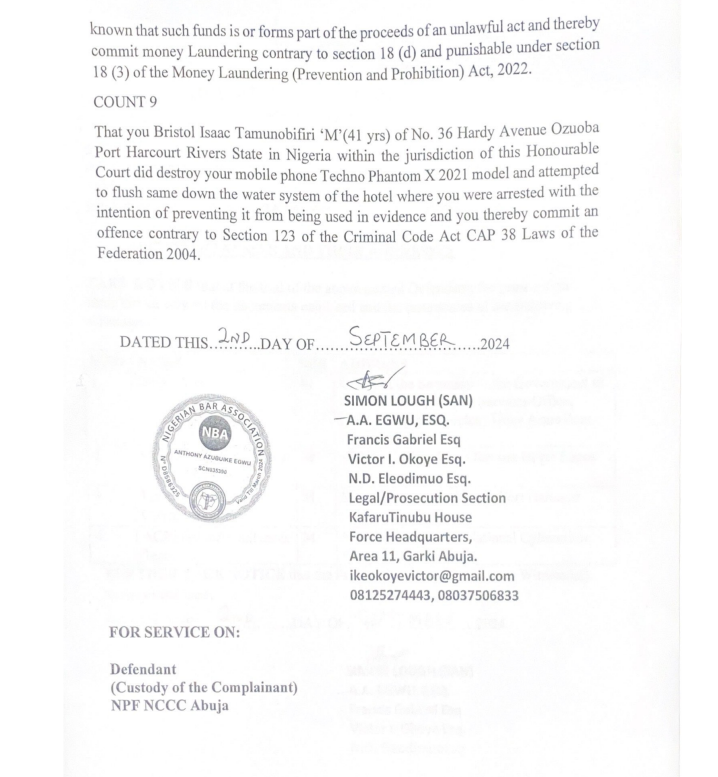The Nigerian Police Force (NPF) has officially filed charges against Isaac Bristol, the man believed to be behind the prominent whistleblower account PIDOM Nigeria. The case, which has sparked widespread debate about freedom of speech and government transparency, took a significant step forward as Bristol was brought before the Federal High Court in Abuja.
The Charges
After 28 days in custody, Bristol, a 41-year-old resident of Port Harcourt, now faces a nine-count charge that primarily revolves around his alleged activities on the social media platform X (formerly known as Twitter). The charges paint a picture of a digital crusader accused of overstepping legal boundaries to expose government corruption.
Key among the allegations is the charge that Bristol “transmitted an alleged classified document of the Federal Government of Nigeria” via the X handle @Pidomnigeria. The prosecution claims that Bristol knowingly sent false messages with the intent of causing a breakdown of law and order. One specific instance cited in the court documents involves a post about a substantial sum of money allegedly released to the NAHCON Chairman through the office of Vice President Shettima.


The #EndBadGovernance Connection
Intriguingly, the charges also link Bristol to the promotion of the August 2024 #EndBadGovernance protest, suggesting that authorities view his online activities as part of a broader attempt to incite civil unrest, a connection raises questions about the line between digital activism and what the government considers cybercrime.
A Case Shrouded in Controversy
The case has been mired in controversy from the outset. Bristol’s arrest on August 5th in Port Harcourt was reportedly carried out by a team of 15 heavily armed men in plain clothes, operating under the auspices of the Force Criminal Investigation Department (FCID) and the National Cybercrime Centre (NCCC). The manner of his detention has drawn criticism from various quarters, including prominent figures.
Labour Party presidential candidate Peter Obi has been vocal in his concerns, warning that actions like Bristol’s abduction risk turning Nigeria into a “banana republic” if left unchecked.


Health Concerns Amplify the Debate
Adding another layer of complexity to the case are reports about Bristol’s deteriorating health. Recent reports suggest that Bristol’s physical condition has rapidly worsened, allegedly due to torture and punitive starvation during his time in solitary confinement. These claims have intensified calls for his immediate release and have raised serious questions about the treatment of detainees in Nigeria.
Looking Ahead
The case could be a pivotal test for Nigeria’s judicial system regarding digital activism and government criticism. Its outcome could significantly impact freedom of speech and the role of social media in holding public officials accountable.
As prominent voices demand Isaac Bristol’s unconditional release while the government pursues charges, a closely watched legal battle is unfolding both domestically and internationally.


